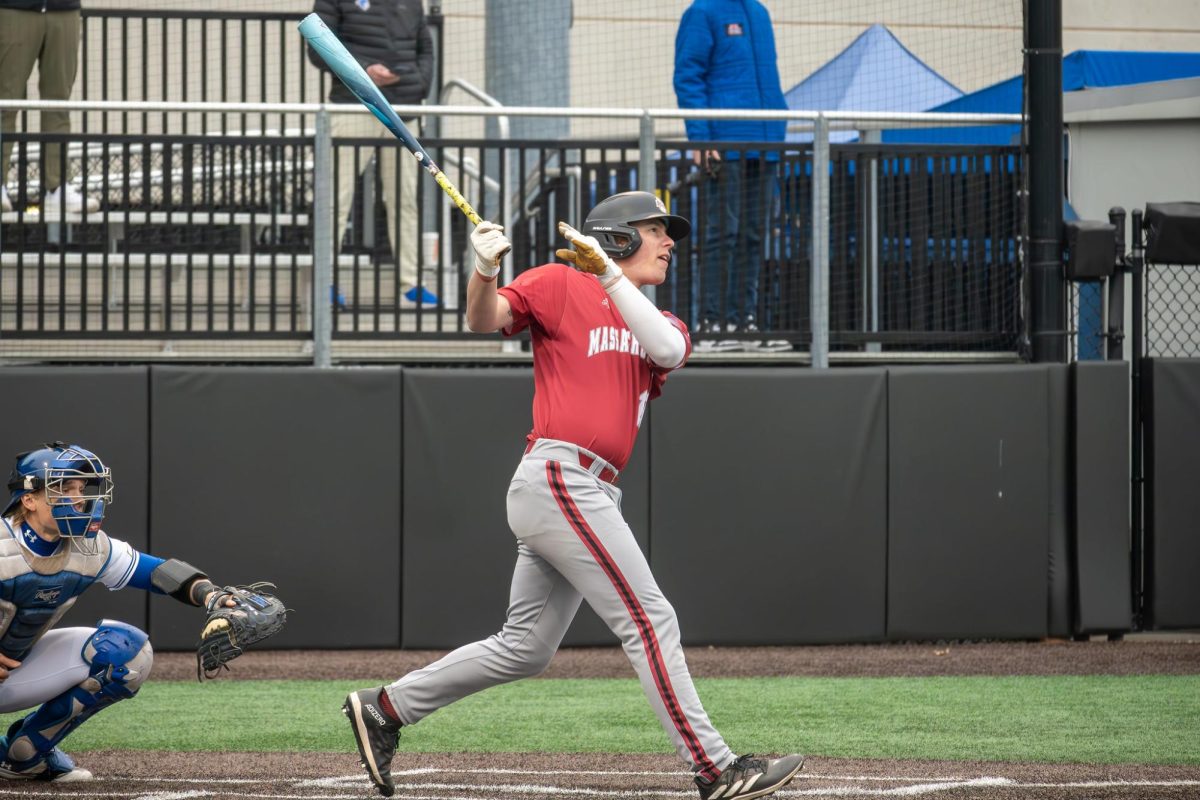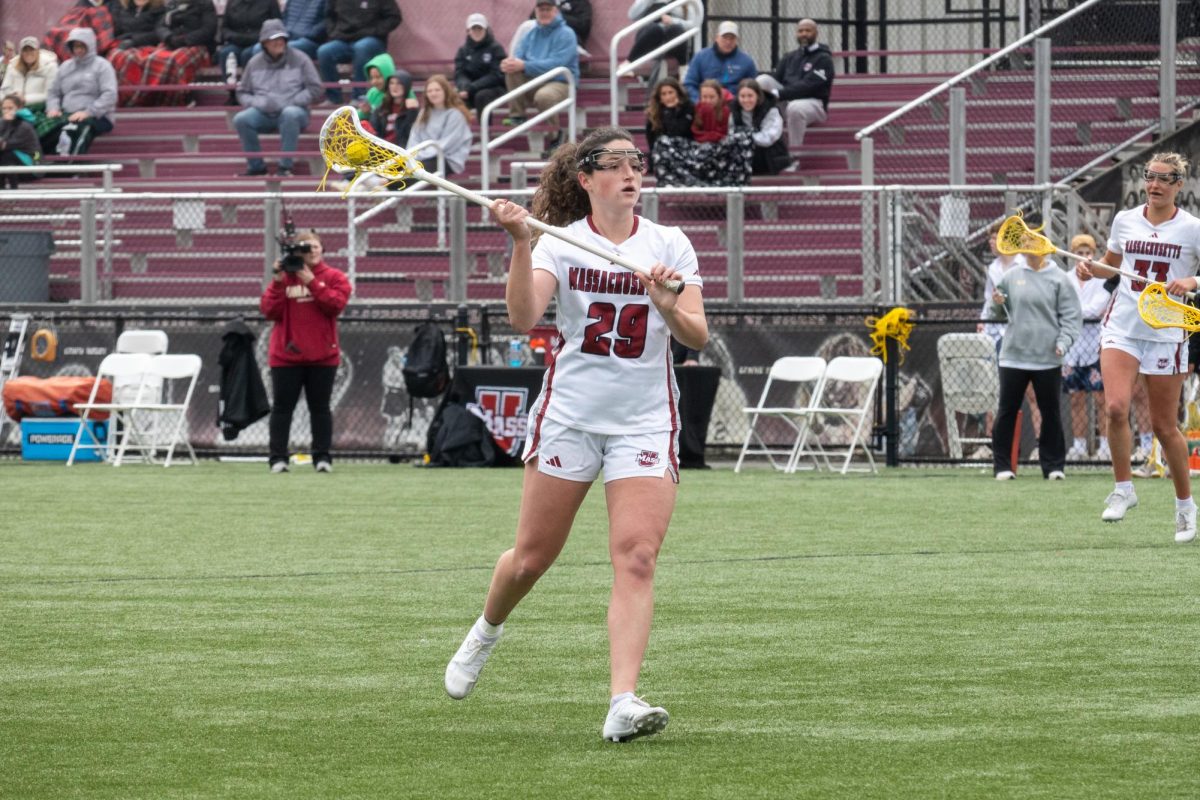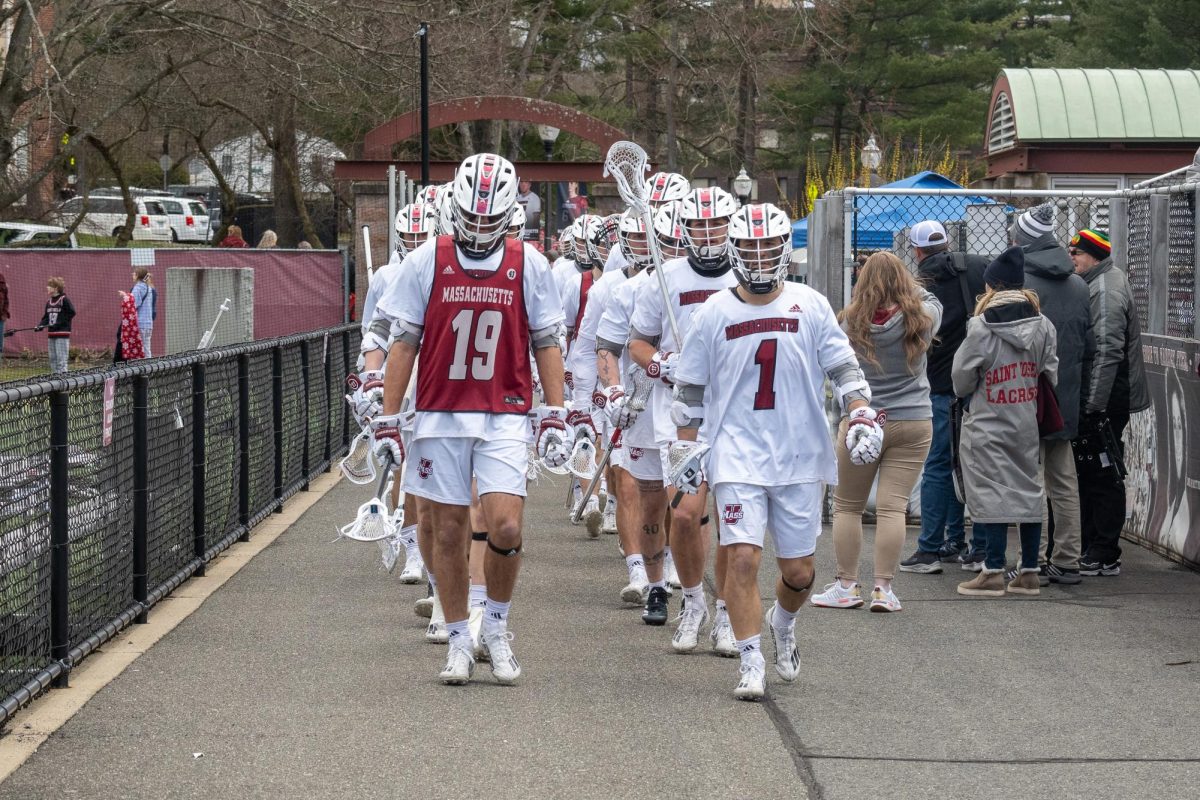
Carving out a diagonal path of totality from the Northwest to the Southeast United States, the total solar eclipse was best seen in Oregon, Wyoming, South Carolina and Tennessee on August 21, but was only partially seen in Massachusetts and 37 other states on the continental U.S.
Despite Amherst being out of the path of totality, the University of Massachusetts astronomy department was not deterred from organizing a public viewing of the “Great American Eclipse,” which had not struck since 1979.
Held at the UMass Sunwheel, south of McGuirk Alumni Stadium, the viewing drew an estimated 500 people. A diverse array of parents and children, teenagers, young adults and elderly folk—most of whom arrived at around 1:23 p.m., when the eclipse began—stayed shortly after until 2:46 p.m., when the moon had nearly completely covered the sun.
“These are astronomical, scientific events across the history of humanity. They’ve always had a special place in people’s mind,” said Professor Mauro Giavalisco of the UMass astronomy department, who was handing out special “eclipse goggles” during the event for spectators to use to look safely at the eclipse without damaging their eyes from the sunlight.
Giavalisco had ordered her goggles online, looking at what the American Astronomical Society had recommended on their website, saying she went with their recommendations because she “didn’t want to risk anyone’s retinas.”
“I tried to distribute all the goggles I had, which were only 50. Then I started going down the line, sharing my goggles,” she added.
Giavalisco helped to organize the viewing, which was hosted by fellow UMass astronomy professor Daniela Calzetti and Thomas Whitney of the Astronomy Association, who brought two telescopes to the scene. Each had solar filters in them for safe and vivid viewing of the eclipse.
Initially, Giavalisco expected only 50 people to show up to the event; instead, hundreds came, surprising and delighting her.
“It’s pretty amazing actually. I’m glad that there’s so much interest for scientific events,” she said. “My goal is to cultivate the next generation of astronomers.”
Of that next generation of astronomers, Giavalisco’s three children were at the event, volunteering their time with their mother by helping to distribute goggles and adjust telescopes.
While Giavalisco’s 14-year-old son Claudio mentioned that he is more interested in pursuing engineering after high school, he said he still found the eclipse compelling, describing the event as “pretty cool.”
Giau Diep, a sophomore at UMass and a double major in astronomy and business, described the event in the same words, noting how because it is his first eclipse, it makes it especially memorable. However, both Claudio Giavalisco and Diep found the eclipse slightly disappointing due to the clouds and the fact that they were not in the path of totality.
“It’s a natural part of the universe, and I’m kind of sad I’m not in the path of totality, because I only get to see part of it,” Diep said.
“I expected it to be a slight bit dimmer,” added Giavalisco. “It got a slight bit dimmer, so expectations met.”
However, Hang Xiao, an associate professor in the UMass food science department, did not think the clouds marred the eclipse at all. Xiao said after seeing the eclipse discussed in the news, he had to see it in real life.
“We all learned from basic science what would happen, what’s the reason for this phenomenon, but you have to see it once in your lifetime to believe it,” Xiao said.
He added, “You know, without this organization, probably people wouldn’t gather and have fun like this, and also, all the kids learned something. Hopefully one day they’ll become scientists.”
Jackson Cote can be reached at [email protected] and followed on Twitter @jackson_k_cote.



















